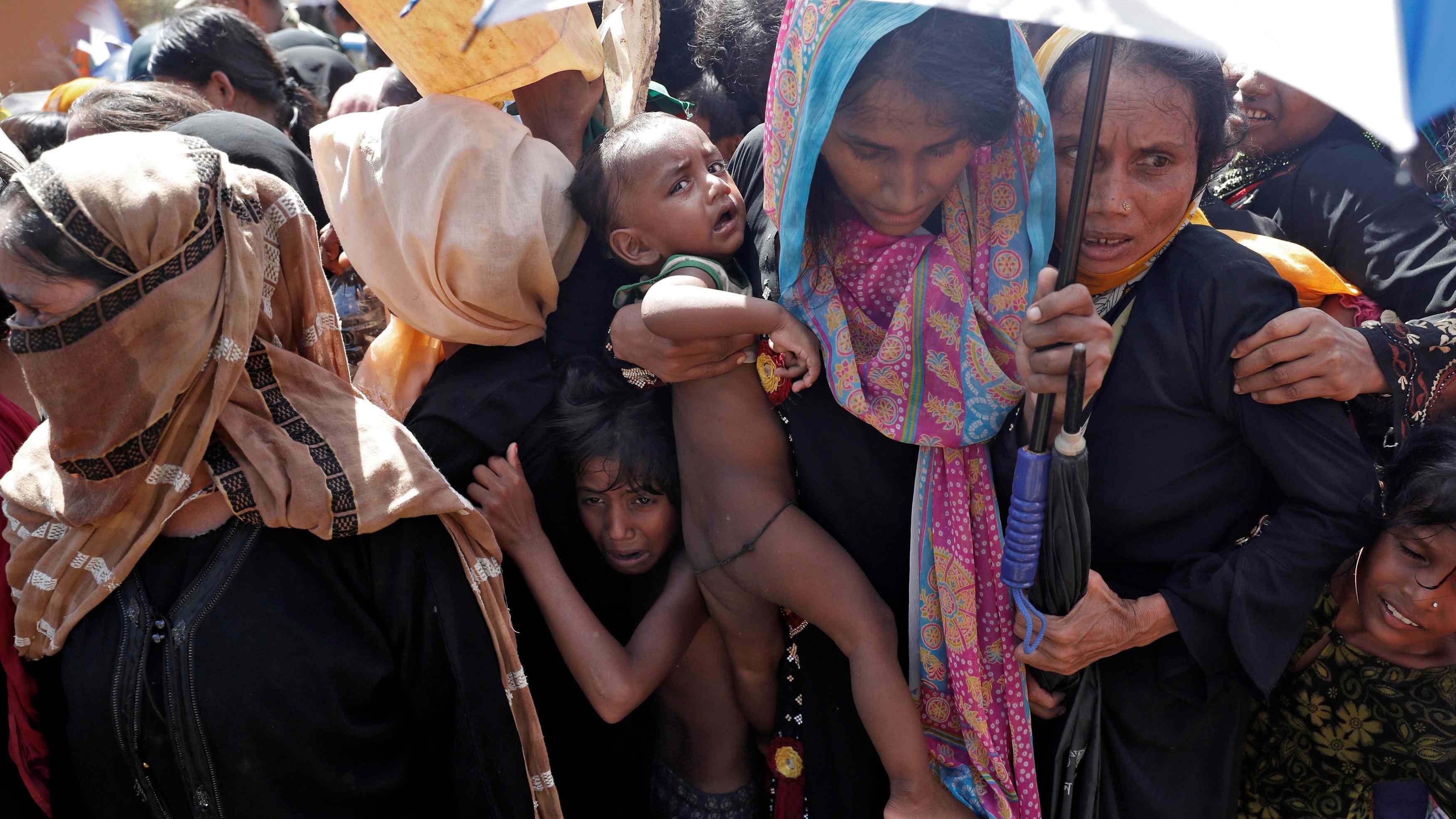Bangladesh’s makeshift refugee camps, where more than 435,000 Rohingya Muslims have taken shelter after fleeing from the violence in neighboring Myanmar, face a growing risk of cholera outbreak, the World Health Organisation (WHO) warned on Monday.
A month after the exodus began, those dispersed in some 68 camps and settlements along the border do not have safe drinking water and hygiene facilities, according to the WHO.
The camps also face dire shortages of food and medicine in what has quickly become one of the world's largest refugee settlements.
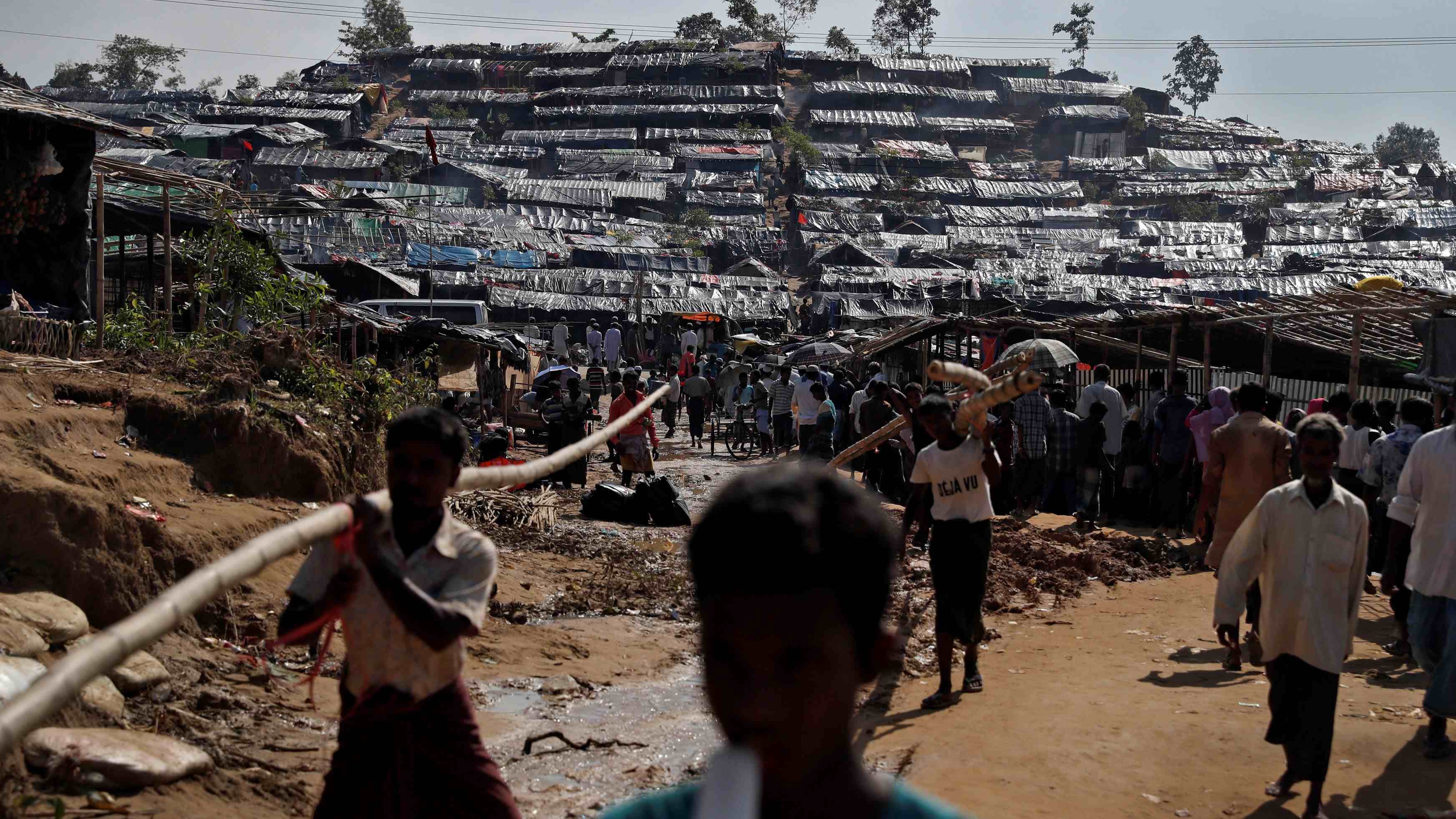
Rohingya refugees walk through a camp in Cox's Bazar, Bangladesh, September 25, 2017. /Reuters Photo
Rohingya refugees walk through a camp in Cox's Bazar, Bangladesh, September 25, 2017. /Reuters Photo
"Risk of water-borne diseases is high, especially there is very high risk of cholera and this is why everyone is concerned," the WHO said in a statement. "Interventions are being scaled-up, however, the situation remains critical and challenging."
The latest influx has overwhelmed the camps around Cox's Bazar, which previously housed at least 300,000 people who had fled earlier violence in Myanmar's Rakhine state.
The WHO said mobile medical centers have been set up, while Bangladesh health authorities said they have treated some 4,500 Rohingya for diarrhea in a month and vaccinated some 80,000 children for measles and polio.
"We are trying our best to face the challenges. But we are concerned," Enayet Hossain, deputy head of Bangladesh's health services department, told AFP.
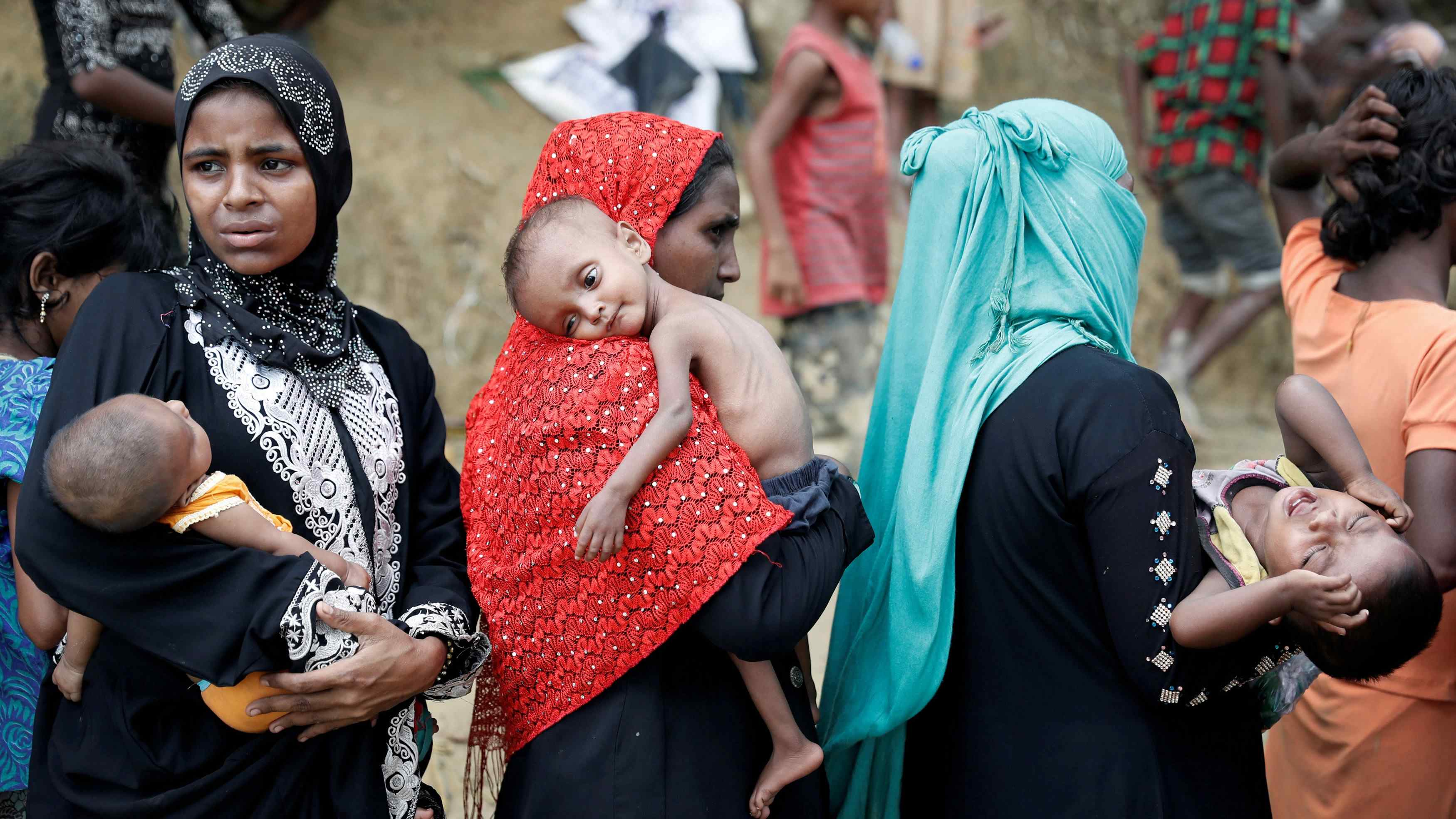
Rohingya refugees wait to receive aid in Cox's Bazar, Bangladesh, September 24, 2017. /Reuters Photo
Rohingya refugees wait to receive aid in Cox's Bazar, Bangladesh, September 24, 2017. /Reuters Photo
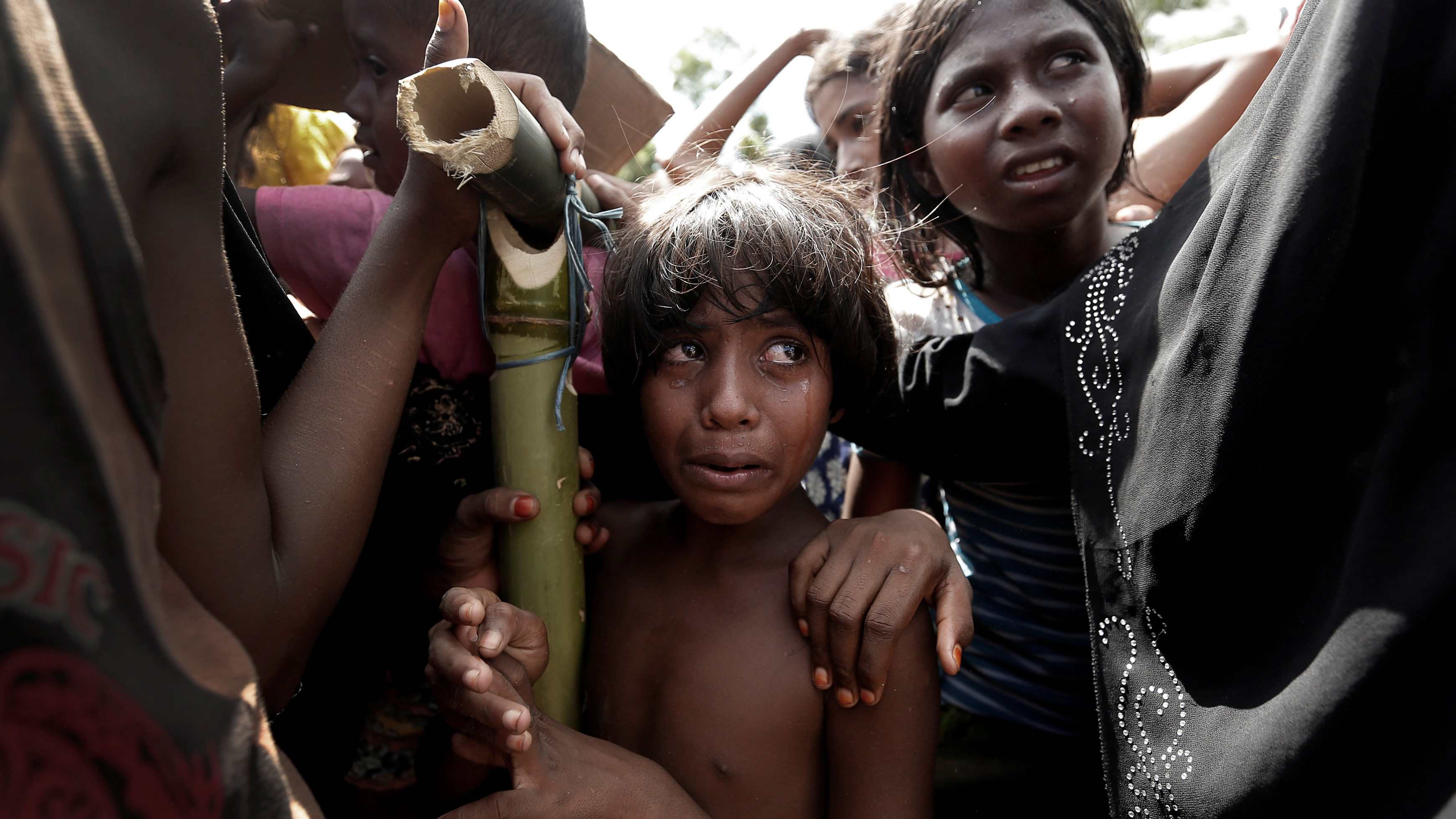
A Rohingya refugee girl reacts as people scuffle while waiting to receive aid in Cox's Bazar, Bangladesh, September 25, 2017. /Reuters Photo
A Rohingya refugee girl reacts as people scuffle while waiting to receive aid in Cox's Bazar, Bangladesh, September 25, 2017. /Reuters Photo
The department said that at least 10 Rohingya have died in Bangladesh since the influx, most from bullet and blast wounds suffered in Rakhine.
Two elderly Rohingya men died of diarrhea at a charity clinic more than a week ago, said Misbah Uddin Ahmed, a health department official at Ukhia, where most of the camps are located.
"They were also suffering from old age complications and gastroenteritis," he said.
Two Rohingya women, aged 50 and 60, were shifted to a hospital in the port city of Chittagong after they were diagnosed with HIV, police said.
Ahmed said specialists from Bangladesh's International Centre for Diarrhoeal Disease Research (ICDDRB) and government scientists had visited camps to take samples.
"They are going to set up two field stations here," he told AFP.
'Situation under control'
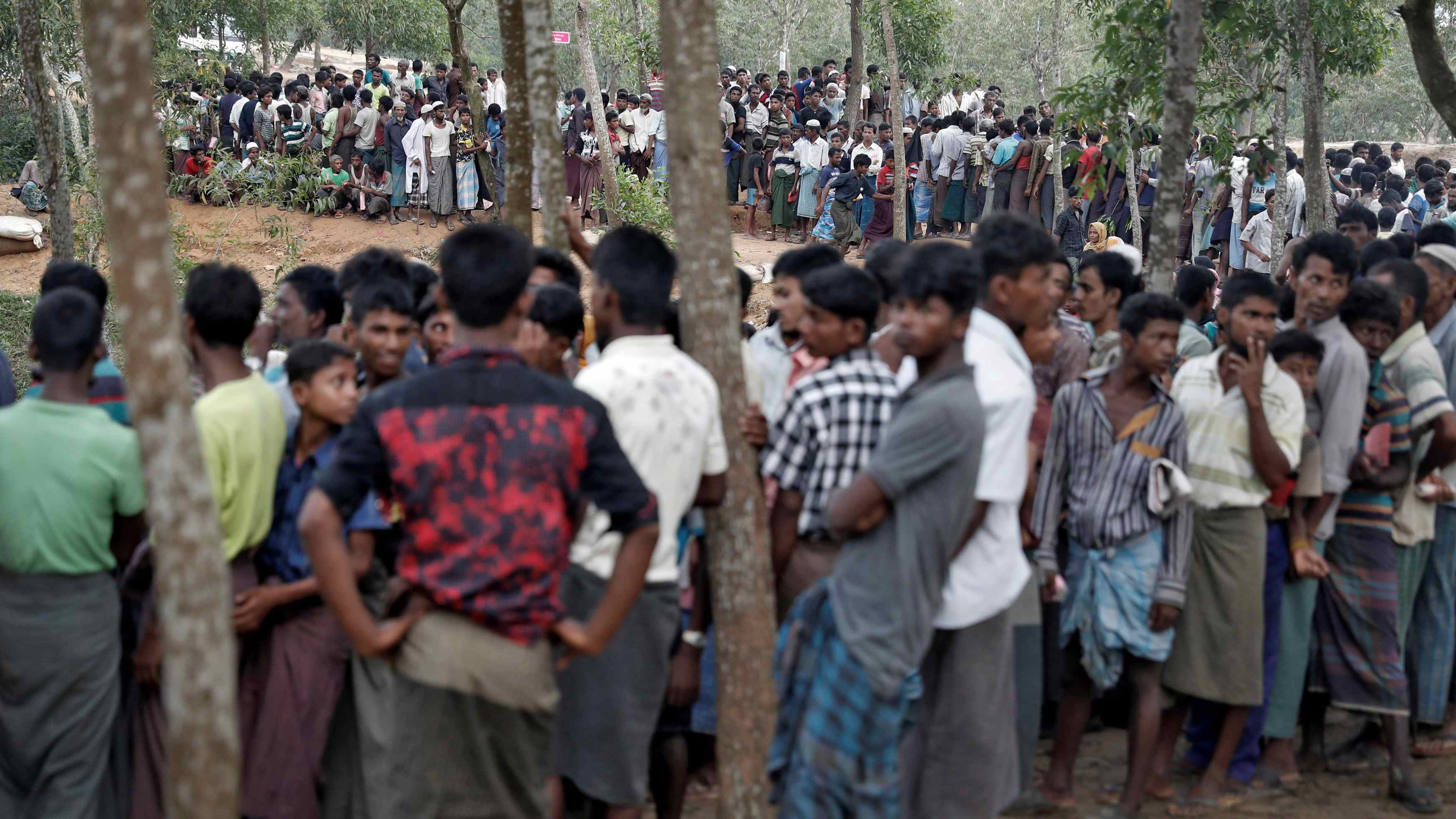
Rohingya refugees wait to receive aid in Cox's Bazar, Bangladesh, September 25, 2017. /Reuters Photo
Rohingya refugees wait to receive aid in Cox's Bazar, Bangladesh, September 25, 2017. /Reuters Photo
The Doctors Without Borders (MSF) group said last week the camps were on the brink of a public health disaster as filthy water and faeces flow through shanties. It said a "massive scale-up of humanitarian aid" was needed, with adults on the cusp of dying from dehydration.
But Ahmed said the situation was improving as hundreds of latrines and tube-wells were being dug by government services and local charities.
The army, which has taken over aid management, says it has made sanitary facilities the "highest priority" in an effort to stave off a health emergency.
"The situation is still under control," Ahmed said.
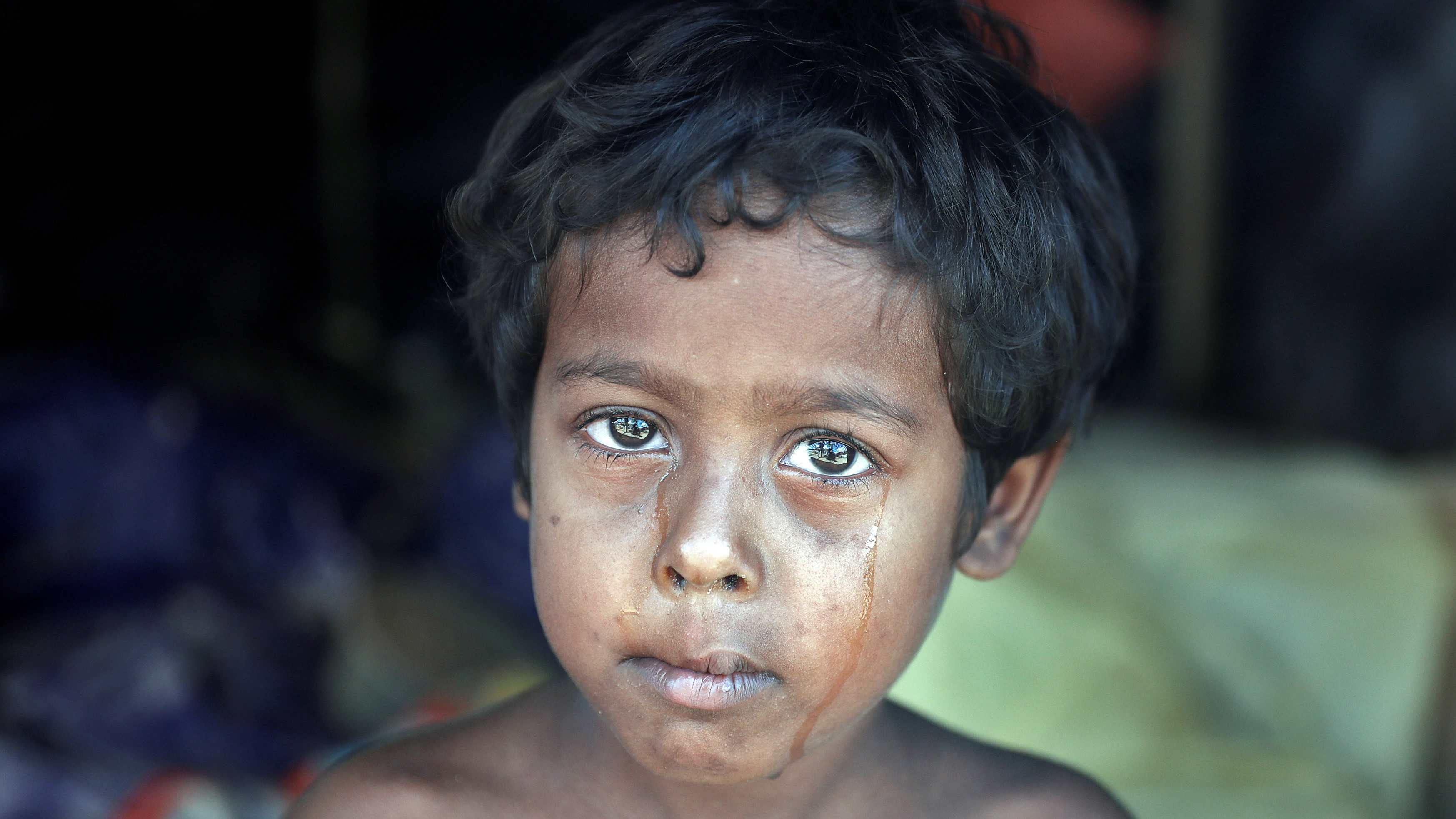
A Rohingya refugee cries as people scuffle while waiting to receive aid in Cox's Bazar, Bangladesh, September 25, 2017. /Reuters Photo
A Rohingya refugee cries as people scuffle while waiting to receive aid in Cox's Bazar, Bangladesh, September 25, 2017. /Reuters Photo
More than 436,000 refugees have crossed the border from Rakhine since August 25 when a military crackdown was launched following attacks by Rohingya militants, according to UN figures on Monday.
The refugees have given shocking accounts of killings and mass rapes by Myanmar soldiers and Buddhist mobs. The Myanmar military says they have only targeted Rohingya militants.
Myanmar searches for Hindu corpses
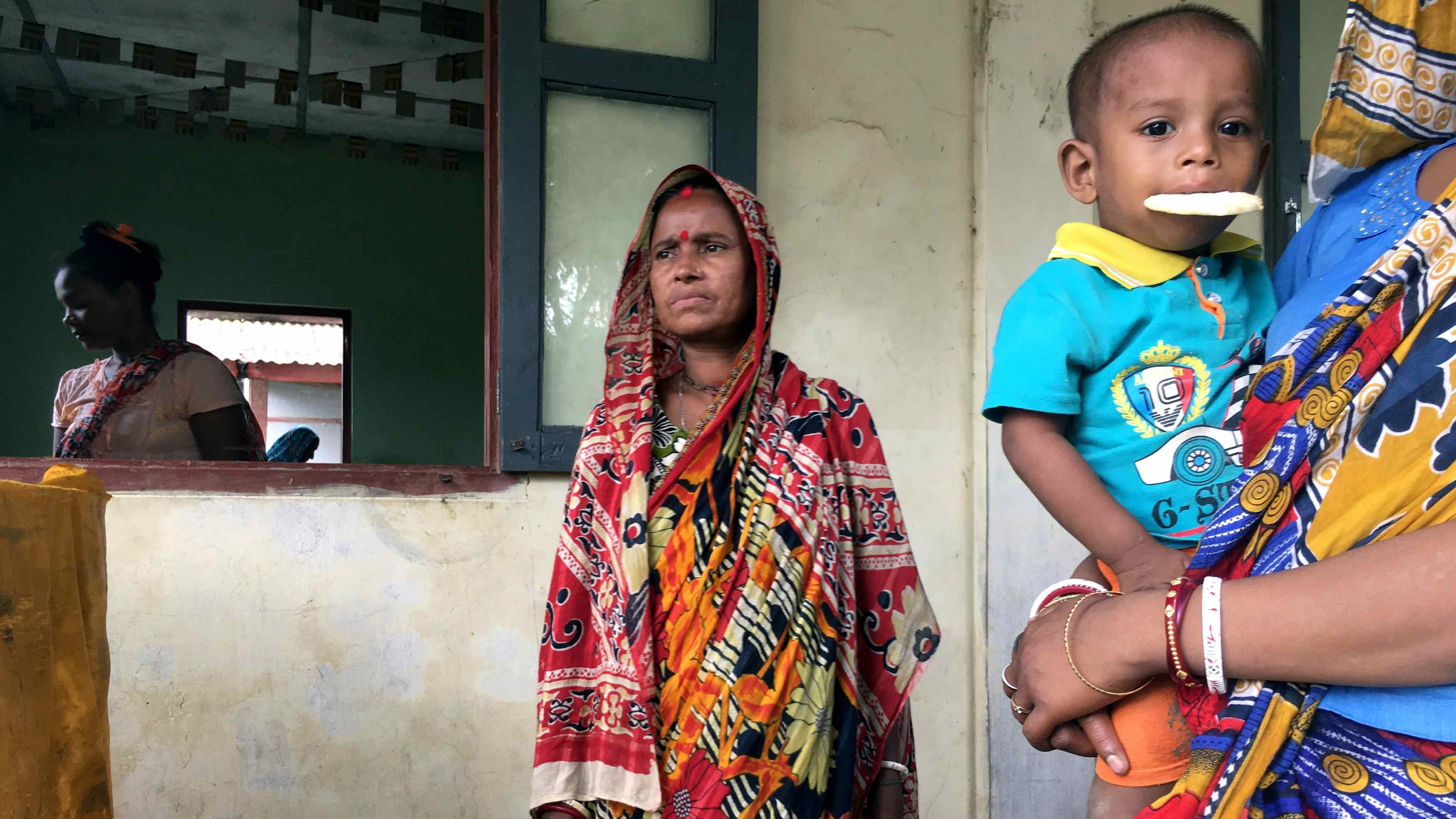
A Hindu family at a shelter near Maungdaw, Rakhine state, Myanmar, on September 12, 2017. /Reuters Photo
A Hindu family at a shelter near Maungdaw, Rakhine state, Myanmar, on September 12, 2017. /Reuters Photo
Meanwhile, Myanmar troops on Monday searched for dozens of missing Hindu villagers feared dead after the discovery of a grave containing 28 corpses in Rakhine State, evidence of what the army says is a massacre by Rohingya Muslim militants.
Northern Rakhine has been ravaged by communal violence since Rohingya insurgents staged deadly raids on police posts on August 25, unleashing an army crackdown that has displaced hundreds of thousands of civilians.
The vast majority are Rohingya Muslims who have fled across the border to Bangladesh from a military campaign which the UN says likely amounts to ethnic cleansing of the stateless minority.
But tens of thousands of ethnic Rakhine Buddhists, and the region's small population of Hindus, have also been internally displaced, saying they were attacked by Rohingya militants.
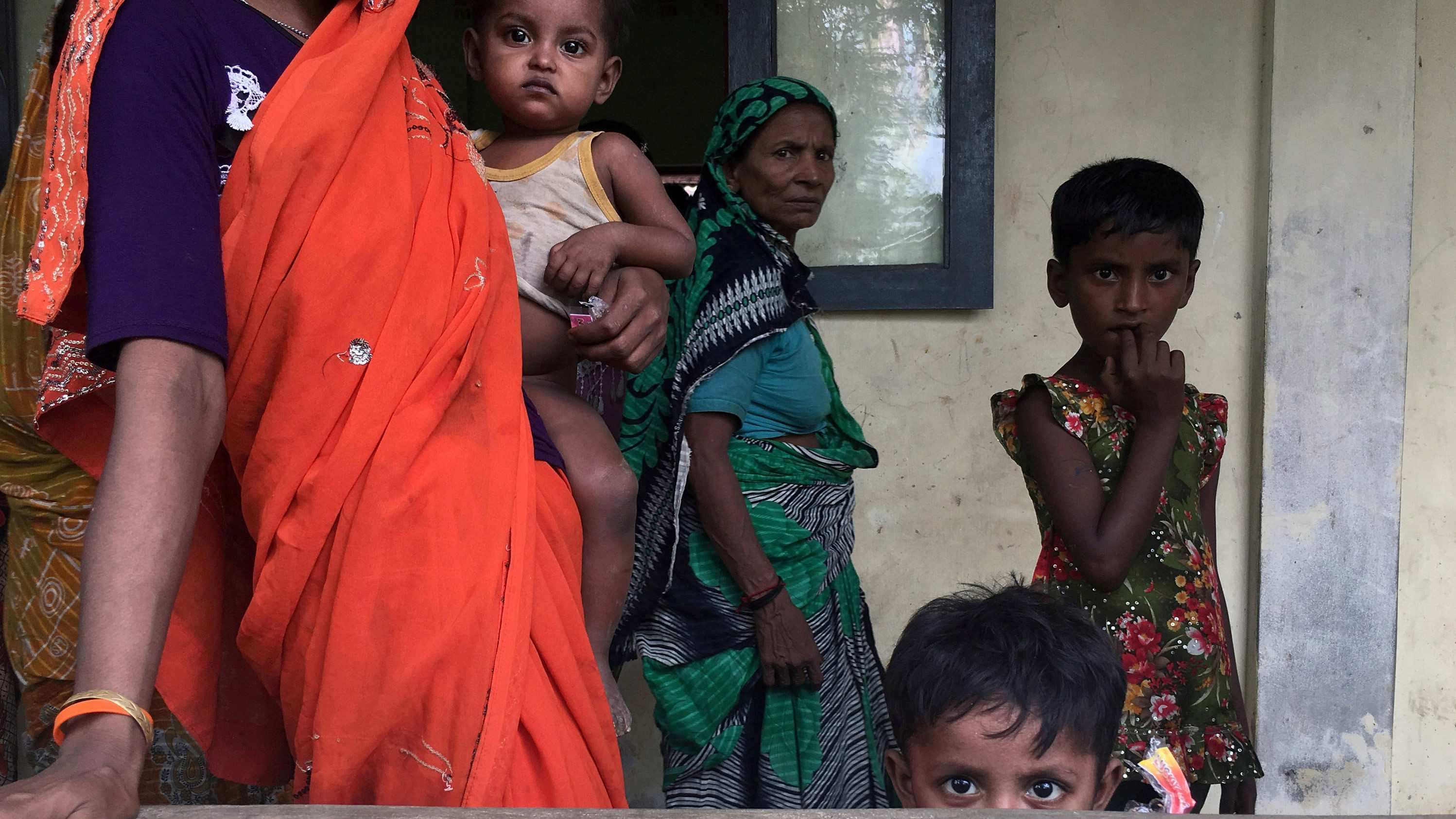
A Hindu family at a shelter near Maungdaw, Rakhine state, Myanmar, on September 12, 2017. /Reuters Photo
A Hindu family at a shelter near Maungdaw, Rakhine state, Myanmar, on September 12, 2017. /Reuters Photo
On Sunday the army said it had discovered two mud pits filled with 28 Hindu corpses, including women and children, outside the village of Ye Baw Kyaw in northern Rakhine.
"The security troops continue searching for remaining Hindu people around the places of the pits," said a statement posted on army chief Min Aung Hlaing's Facebook page Monday, blaming Rohingya militants for the killings.
Displaced Hindus from the area told AFP last week that Rohingya fighters stormed into their communities on August 25, killing many and taking others into the forest.
They showed AFP a list of 102 people from two villages – Ye Baw Kyaw, where the bodies were found, and Taung Ywar – feared dead by distraught relatives, who wept as they described the bloodshed.
A Hindu community leader in the area, Ni Maul, confirmed to AFP that the search was ongoing.
"Soldiers and police are here with us to find the rest of the bodies around this area," he said, adding that authorities are still working to identify the 28 corpses exhumed on Sunday.
With the government blocking access to the conflict zone, it is difficult to verify the maelstrom of accusations that have further fueled ethnic hatreds in Rakhine.
Related stories:
Source(s): AFP

